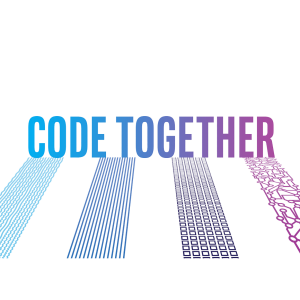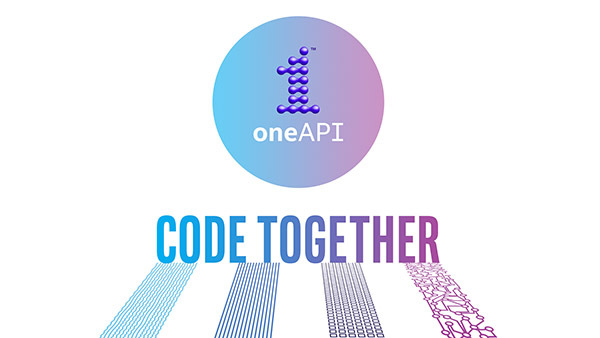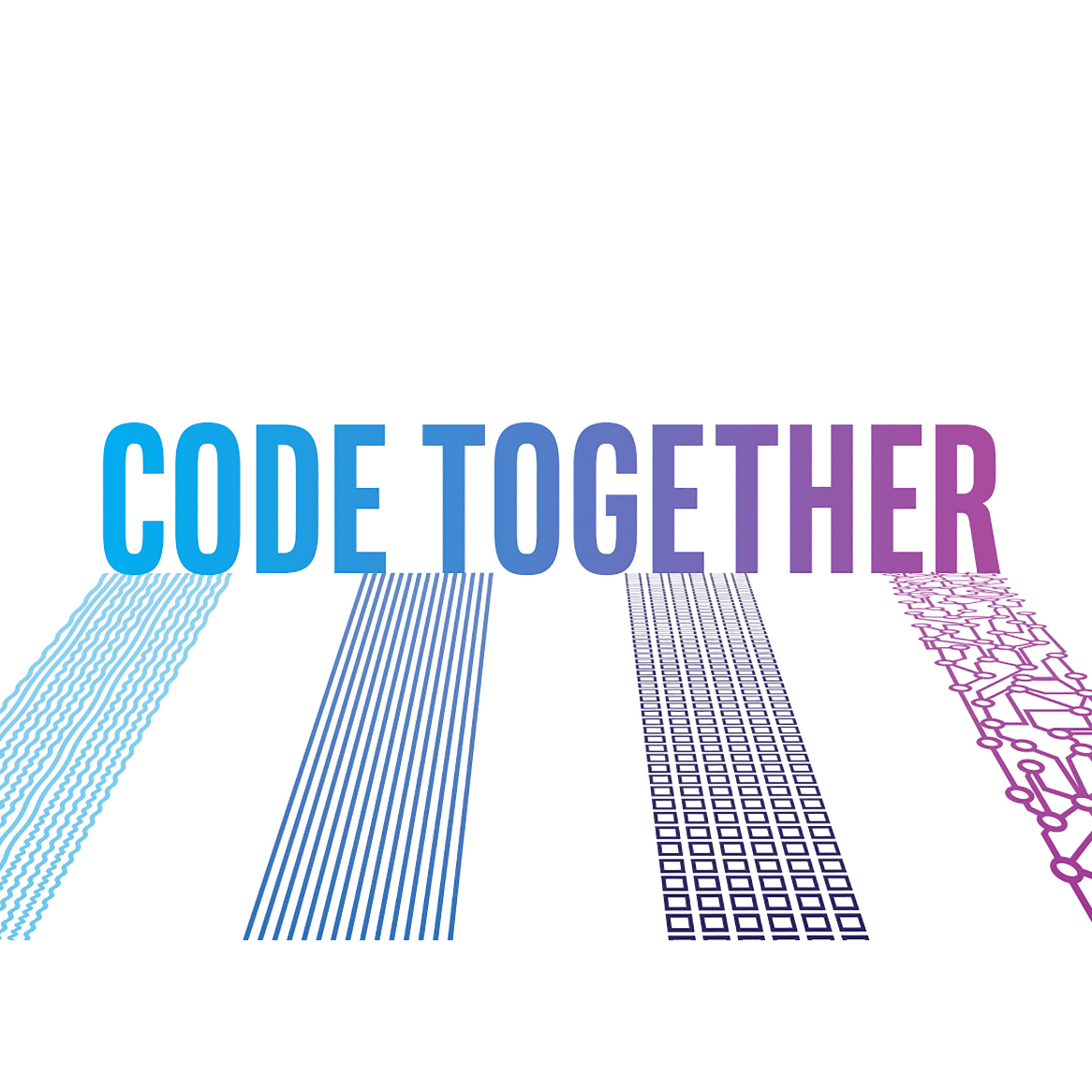Episodes

Tuesday Jun 07, 2022
SYCL – Empowering Developers in Academia and Enterprise
Tuesday Jun 07, 2022
Tuesday Jun 07, 2022
Ever since its introduction in 2014, SYCL has grown in popularity and adoption. It is a royalty-free, cross-platform abstraction layer that enables code for heterogeneous processors, written in a “single-source” style using C++ standards.
The flexibility to deploy across multiple platforms, reuse code helps enable advanced hardware features that can be used by developers. This allows develops the flexibility that they are looking for.
Today’s conversation with our guests touches upon SYCL’s evolution and its adoption both in academia and in enterprise applications. We will discuss how academia and enterprise are learning how to program with SYCL in addition to what the future holds for this open standard.
For more information, see:
ENCCS – EuroCC National Competence Centre Sweden
EuroCC National Competence Center Sweden – GitHub
SYCL standard
SYCL Academy GitHub repository
The Khronos Group
Intel DevCloud
Intel oneAPI AI Analytics Toolkit
Jupyter* Notebook
Data Parallel C++ book
Comparing programming models: CUDA and SYCL
Learn about SYCL
oneAPI specification
Intel oneAPI toolkits
Roberto Di Remigio Eikås, Research Software Engineer at ENCCS
Email: roberto.di.remigio@it.uu.se
Noah Clemons, Staff Technical Consulting Engineer, Developer Tools Customer Engineering at Intel
Email: noah.clemons@intel.com

Monday Apr 11, 2022
Solving for Productivity in Data Science with Modin and AI Optimizations
Monday Apr 11, 2022
Monday Apr 11, 2022
The rapid advancement in machine learning and data science fields have aided data scientists in arriving at meaningful insights. However, it’s not been an easy task to optimize machine learning infrastructures to allow data scientists to focus on their core expertise. Today, we will discuss how certain tools and hardware optimizations are not only saving time, but also enabling data scientists to be more productive.
Learn more:
Ponder.io
Intel oneAPI AI Analytics Toolkit
Intel Distribution for Python
Intel Distribution of Modin
Intel Extension for Scikit-learn
Intel Optimization for PyTorch
Intel Optimization for TensorFlow
Guests:
Devin Petersohn, Cofounder and CTO of Ponder
Areg Melik-Adamyan, Principal Engineer and Engineering Manager at Intel

Monday Feb 28, 2022
AI in Gaming: Empowering Game Developers
Monday Feb 28, 2022
Monday Feb 28, 2022
In the gaming world, artificial intelligence (AI) is proving to be a game-changer. It has played a pivotal role in enhancing game-player’s experiences. Amongst other capabilities, Artificial intelligence is used to generate responsive, adaptive, or intelligent behaviors primarily in non-player characters (NPCs) similar to human-like intelligence. With the right tools and access to advanced technologies, developers can create more immersive game experiences and take advantage of machine learning algorithms. Listen in to learn how AI is influencing the gaming industry and the game-developer ecosystem.
Guests:
Adam Goodrich – Adam is the founder and general manager of Procedural Worlds based in Sydney, Australia.
Peter Cross – Senior Software Engineer at Intel.
Learn more:
Procedural Worlds
Canopy by Procedural Worlds
Intel Game Dev AI Toolkit
Intel Distribution of OpenVINO Toolkit
Intel oneAPI Toolkits

Friday Feb 11, 2022
Behind the Scenes: Arming Researchers with Visualization Know-How
Friday Feb 11, 2022
Friday Feb 11, 2022
Scientific visualization (SciVis) is a process of representing raw scientific data as images, which helps scientists improve their interpretations of large data sets. More and more, advanced visualization tools are becoming an integral part of a researcher’s analysis toolkit; and when in the hands of scientists and researchers, they can visualize, interact with, and get better insights from their data. In this podcast, Anne Bowen, a research engineering scientist at the Texas Advanced Computing Center (TACC) shares this process and exciting SciVis use cases with rhinoviruses, oceanography and hydrodynamics, plasma structures, and more.
Guests
- Anne Bowen, research engineering scientist, Texas Advanced Computing Center (TACC), University of Texas at Austin
- Donna Nemshick, performance validation lead, Advanced Rendering and Visualization group., Intel
Learn more
Intel oneAPI Rendering Toolkit

Monday Nov 01, 2021
Building Common Standards for Python Data APIs
Monday Nov 01, 2021
Monday Nov 01, 2021
Adoption of Python has been enormous over the last decade. Why? It’s easy to use, accessible, versatile and can be used for AI, machine learning, data analytics, data visualization, and all types of science. Tune into how 3 experts are involved in building common standards for Python data APIs that can help users use a large collection of libraries to develop high-performance code without limitations on adding exotic features. Regarding the huge growth of custom libraries, “it was more a social problem than a technical problem…we should avoid writing more code. Writing yet another library is very likely not going to be the answer.” The Python Data API Consortium was organized to bring people together and solve a fundamental problem to deliver a common standard. Listen in. [26:32]
Guests:
Travis Oliphant, Quansight’s CEO and the creator of SciPy, NumPy, and Numba; founder/director of Anaconda, and founder of NumFOCUS
Ralf Gommers, co-director of Quansight Labs and director of the Python Data API Standards consortium
Areg Melik-Adamyan, principal engineer and engineering manager at Intel
To learn more
Python Data API Consortium (data-apis.org)
Intel oneAPI AI Analytics Toolkit

Friday Jul 23, 2021
A Big Step Forward: Moving Ginkgo to oneAPI
Friday Jul 23, 2021
Friday Jul 23, 2021
Ginkgo is a production-ready, sparse linear algebra library used for HPC on GPU architectures. It’s now using oneAPI cross-architecture programming to support its foundational design with a high level of performance portability, and focus on software sustainability. ExpertsHartwig Anzt at Karlsruhe Institute of Technology (KIT) and Univ. of Tennessee, and Terry Cojean of KIT provide their insights on lessons learned moving CUDA code to other hardware architectures, and tools that help smooth that transition. “…The oneAPI ecosystem has proven to be a very powerful and useful option for us to actually target different architectures that are all supported by oneAPI…”
Hartwig Anzt, research scientist at University of Tennessee, and group leader at Karlsruhe Institute of Technology (KIT)
Terry Cojean, lead developer of Ginkgo software at KIT
George Silva, Intel academic programs – program manager

Monday Jul 19, 2021
SciVis Unveils a Billion Cells, Covid-19 & Invisible Monsters
Monday Jul 19, 2021
Monday Jul 19, 2021
Scientific visualization (SciVis) is providing new insights in health care and many other research areas in ways that we couldn’t imagine a decade ago. It’s an evolving field where extracting visualizations from very large data sets can improve analysis, diagnosis and patient outcomes while reducing costs – or even uncover hidden discrimination. Hear from Teodora (Dora) Szasz of the University of Chicago and Donna Nemshick of Intel on how SciVis can be transformative in areas such as understanding a billion simulated cells for tumors, creating the Covid-19 model, pioneering medical care, and even studying images in children’s books for gender inequality.
Listen in. [25:51]
Guests:
Teodora (Dora) Szasz, computational scientist, Research Computing Center of University of Chicago
Donna Nemshick, performance validation lead, Intel Advanced Rendering & Visualization Architecture Group
To learn more
Intel oneAPI Rendering Toolkit | Free Download | Innovative Usages Video

Friday Jul 02, 2021
ZIB’s oneAPI Story: Discovering Portability across Multi-vendor Hardware
Friday Jul 02, 2021
Friday Jul 02, 2021
Heterogeneous programming is challenging for developers because it’s been difficult to code or forces compromises in performance. oneAPI is working to break that mold. Many HPC research centers, enterprises and developers are now adopting oneAPI. Hear from experts at Zuse Institute Berlin (ZIB) on their oneAPI story: “We want to have most code portability across different processor architectures, and we don’t want to be bound to specific architectures,” says Dr. Thomas Steinke, head of ZIB’s super computing department. Listen in. [24:01]
Guests
Dr. Thomas Steinke, head of the super computing department, Zuse Institute Berlin (ZIB)
Dr. Steffen Christgau, expert in parallel and distributed computing, super computing and algorithms for innovative architectures, ZIB
Klaus-Dieter Oertel, HPC senior technical consultant, Intel
To learn more:
A oneAPI Case Study: easyWave – A Tsunami Simulations Application [Video]
Gaining Support for Multiple Device by Migrating a CUDA Code to oneAPI—Experiences with the Intel® DPC++ Compatibility Tool?
Zuse Institute Berlin
Intel oneAPI Toolkits
Intel DPC++ Compatibility Tool

Code Together
Code Together is an interview series that explores challenges at the forefront of technology and cross-architecture development. We’ll talk with those at Intel and across the industry who are forging a path on this often treacherous journey through an increasingly diverse, data-centric world. Join the conversation at oneapi.io.
Hosted by Tony Mongkolsmai

